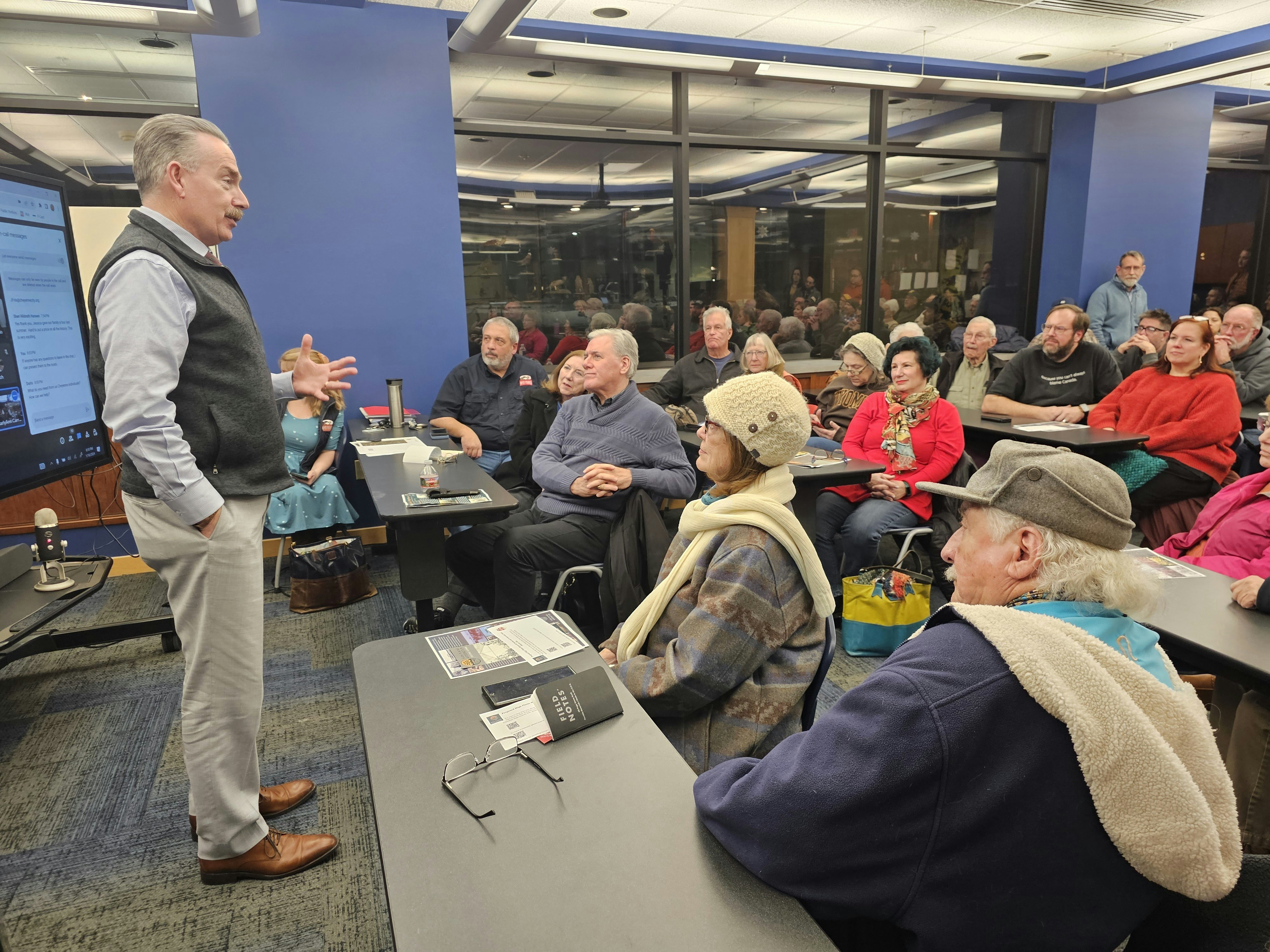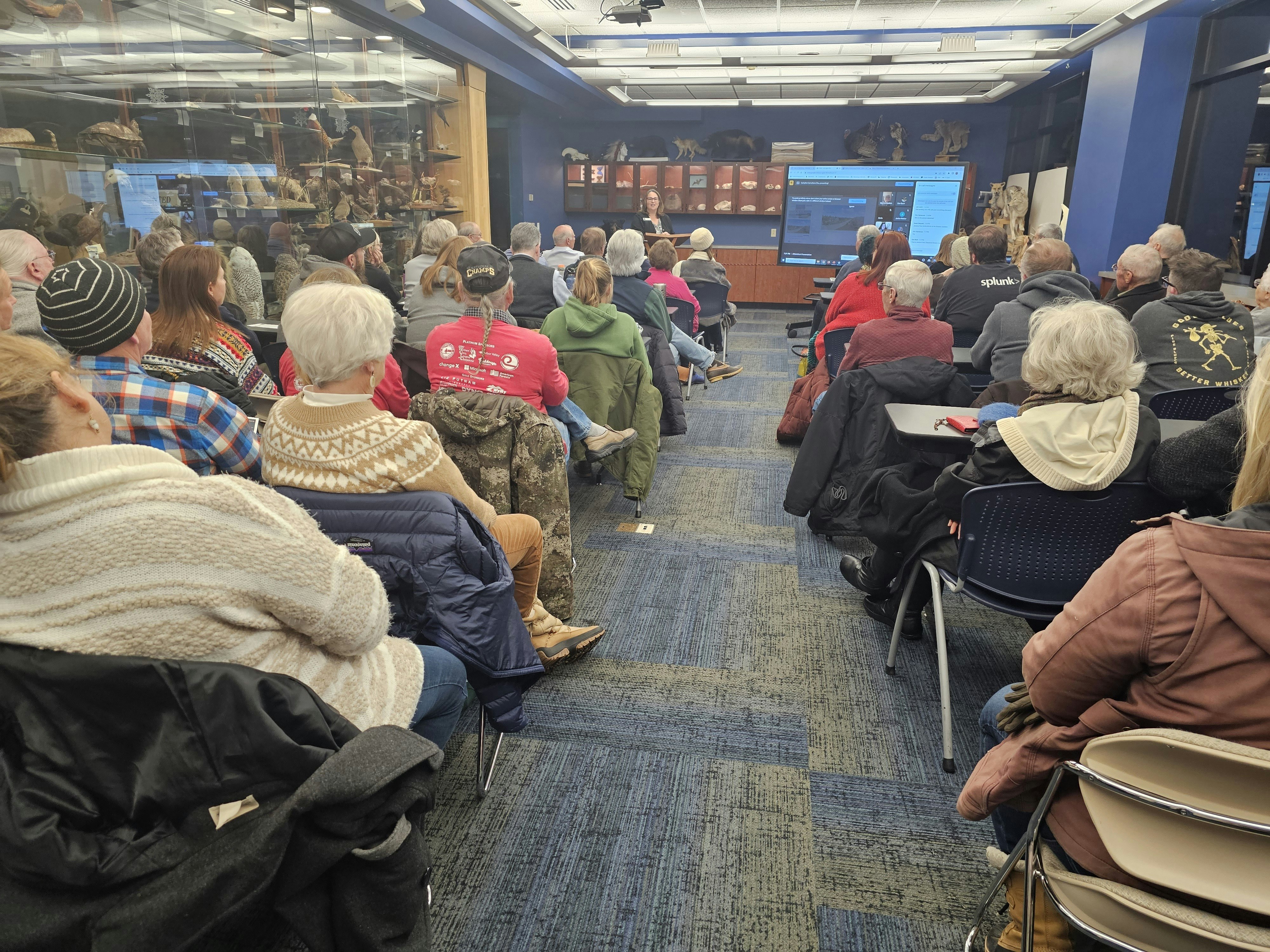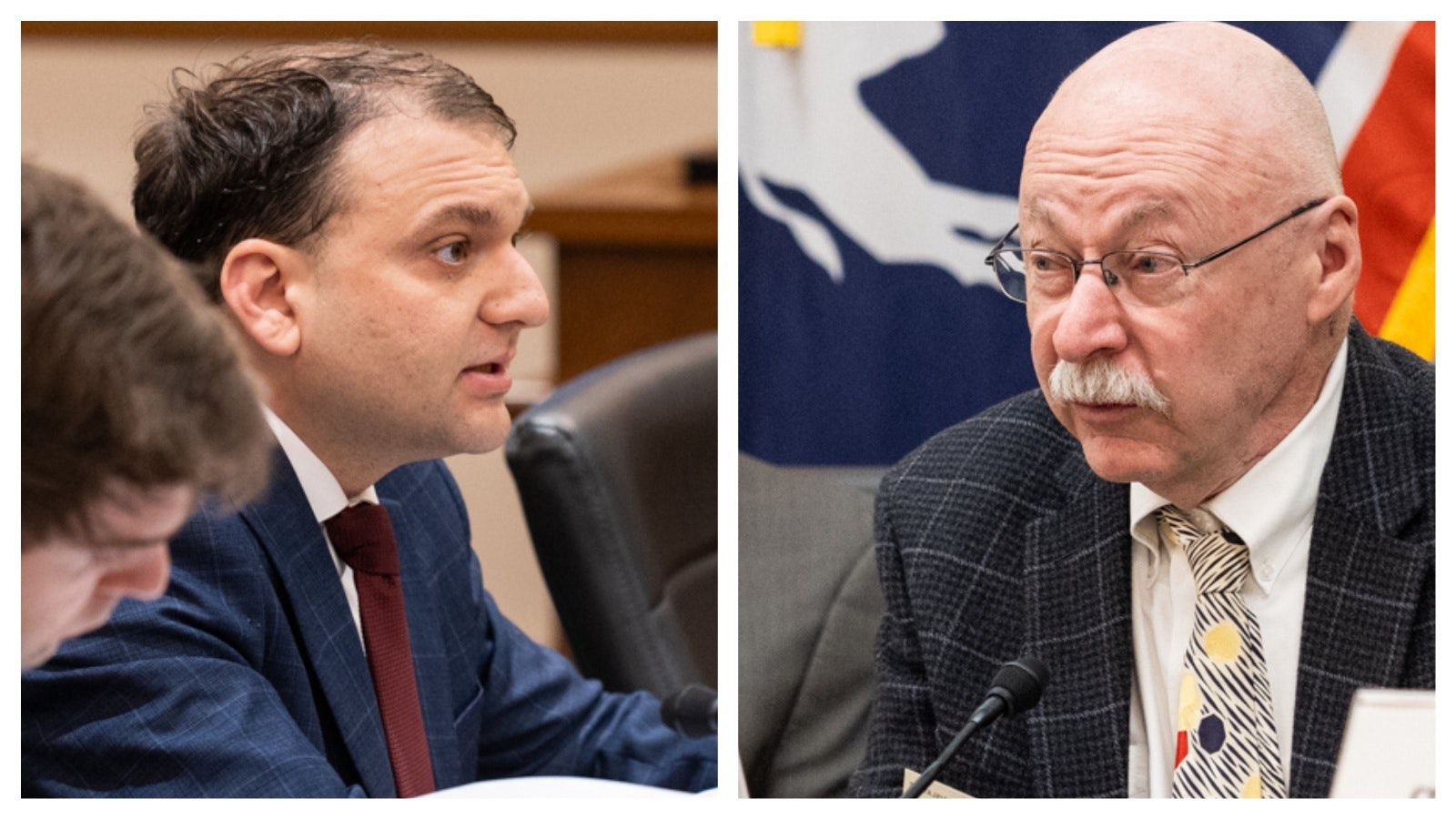When Sara Delgado needed a nonprofit internship to complete one of her master’s degree courses at University of Wyoming, she didn’t have to think twice about where to spend her time.
She knew it had to be the High Plains Arboretum in Cheyenne, where the Wyoming newcomer caught her first glimpse of the incredible pioneering efforts that helped build the Cowboy State.
Delgado brought her personal testimony about the Arboretum to the Joint Appropriations Committee on Wednesday, where she spoke passionately about why she believes lawmakers should get behind a draft bill designating the High Plains Arboretum a state historic site. The bill also directs Wyoming State Parks, Historic Sites and Trails to develop a master plan that will guide its future preservation.
Century Old Trees Tell A Tale Of Wyoming Perseverance
When Delgado first arrived in Wyoming, an open house at the Arboretum was among the first things she found to get to know her new state better. It made quite the first impression.
“I was immediately fascinated by the efforts that multiple generations of researchers, farmers and ranchers had undertaken to find ways to thrive in the High Plains,” Delgado told the committee. “I was also captivated by the unique architecture of the buildings on site, and I was curious about the lives that had been lived in their four walls.”
After spending time as a volunteer at the Arboretum, Delgado became even more convinced that it is a special place, one with unique value for the Cowboy State that must not be lost.
“There’s something truly awe-inspiring about caring for trees that are nearly a century old — trees that have persevered for many years, in some cases without water or direct care,” Delgado said. “My volunteer experience was also visually stunning, having been colored by the chain of trees from all over the world.”
But the trees are just one of the many things that make the Arboretum special, Delgado added.
“There are many reasons why the Arboretum should be a protected State Historic Site,” Delgado told lawmakers. “More so than all of the sentiments I’ve shared, is that the site speaks to what Wyomingites were and are. The site is a testament to the perseverance and ingenuity of Wyomingites and other settlers of the High Plains, who chose, rather than running away from the challenges that face them, to run toward them pride.”
Preserving the site will provide future generations with an invaluable lesson.
“In times of doubt, in the face of new challenges that emerge, we should look no further than the Arboretum and its living testament of this tremendous quality of Wyomingites to overcome adversity and come together to create something incredible,” she said. “I hope that future generations of Wyomingites have the opportunity to create their connections to this very special place.”
Reviving The Arboretum’s Mission
Part of the vision behind the plan will be growing more of the trees that have survived at the Arboretum, said committee co-chair Rep. Bob Nicholas, R-Cheyenne. Given that they endured decades of neglect, they have proven themselves true Wyoming pioneers and survivors.
Making the plants available for sale throughout the state would not only help support the Arboretum as a historic site, but it could help improve properties across the state with plants well-suited to Wyoming.
“So literally hundreds and hundreds of trees that will benefit each and every county that is interested in acquiring certain types of trees that will be productive and useful for the state of Wyoming,” Nicholas said. “That is one of the goals of this project, to re-establish that Arboretum concept.”
Something like 13 partners have already signed up to work together on the project, Nicholas added. Those partners are already working together to develop plans and fundraisers that could help defray the state’s cost of turning the site into a state historic site.
The city of Cheyenne is one of those partners. Mayor Patrick Collins, who was also at the Appropriations Committee, assured lawmakers that Cheyenne will play an active role and has no intention of abandoning the property.
“The city owns this property, and we want to continue to be part of it,” he said. “So, we’ll provide an arborist to help with the trees. We see potential for us to partner and grow trees, not only for Cheyenne, but for state forestry and for the conservation districts across the state in our greenhouse, like they did, you know, in the 1930s.”
Wyoming’s Arboretum Is Also An American Story
Collins also highlighted the Arboretum’s pioneering botanists and their mission to improve the lives of people living in the West. That makes the Arboretum more than a Wyoming story. It’s part of America’s own history of how the West was transformed.
“This site is really an amazing place,” Collins said. “And I don’t know, maybe it’s the boyish part of me, but I think about, you know, 100 years ago, sending explorers out — and we didn’t have airplanes and things like that — but they went all over the world to try to find trees that would grow in Cheyenne, in this high West Desert.”
These Indiana Joneses of the plant world went on ships to places like China and Mongolia, riding trains north to all the farmers markets in small villages in their search for the absolute hardiest plants they could get their hands on for Wyoming.
“Then we look at the ranching communities and the shelter belts,” Collins said. “I don’t think there’s a ranch probably that hasn’t benefited from the research that happened here.”
On top of that, the Conservation Corps was active at the site, building beautiful stone works. And the site also includes one of the West’s first water plants, which was a big part of improving the inhospitable environment of the West.
“Today (the USDA is) doing grasslands research on cow-calf pairs,” Collins said. “And I’m not a rancher and I don’t quite understand exactly, but they’re trying to make sure that our existing ranching environment is healthy.”
Collins believes the Arboretum is a resource well worth preserving, but the project is too big for Cheyenne to handle alone.
“Cheyenne will never have the resources to maximize what this could be,” Collins said. “So I think this is a marriage that I think is beautiful, and I just wanted to come here today to say that, you know, we want to be a partner in this. We think it’s a great program, and we really look forward to your support.”
Renée Jean can be reached at renee@cowboystatedaily.com.







